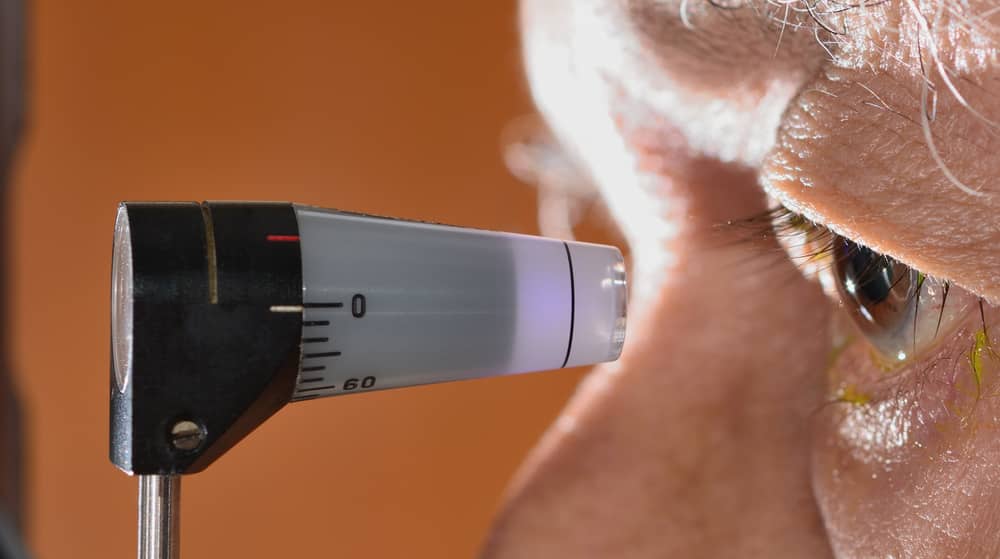Many seniors are concerned with preventing glaucoma, which is one of the leading causes of blindness in adults over 60. While glaucoma can be hereditary, there are several steps you can take to prevent the disease’s more serious symptoms. Find out how to prevent glaucoma through regular eye exams and simple lifestyle changes.
How to Prevent Glaucoma
How Glaucoma Works
Glaucoma slowly damages the eye’s optic nerve, which provides the link between the eye and the brain. There are several types of glaucoma, but the most common type – known as primary open-angle glaucoma – occurs when fluid in the eye is unable to drain properly. This form of glaucoma is notoriously sneaky, typically chipping away at your side, or peripheral, vision before you notice any significant changes to your sight. But while you can’t regain the vision you lose from glaucoma, your eye doctor may be able to prevent serious vision loss resulting from the condition. It all comes down to early treatment – which means regular eye exams are a must.
Eye Exams to Prevent Glaucoma
For glaucoma sufferers, time is everything. Early detection is the best way to prevent severe glaucoma symptoms – but how often should you have an eye exam for best results? The following year-by-year guidelines offer a good place to start:
- Individuals Under the Age of 40: eye exams every two to four years
- Individuals Age 40 to 54: eye exams every one to three years
- Individuals Age 55 to 64: eye exams every one to two years
- Individuals Age 65 and Up: eye exams every six to 12 months
Of course, these guidelines don’t necessarily apply to individuals with high glaucoma risk factors. For best results, individual over 35 with high risk factors should schedule eye exams every six to 12 months. But what are those risk factors?
Glaucoma Risk Factors
Understanding glaucoma risk factors is an important part of preventing glaucoma. There are several factors to be aware of:
- Individuals with high internal eye pressure, which a doctor can detect
- Individuals over the age of 60
- Individuals with family history of glaucoma
- Black, Asian or Hispanic individuals
- Individuals with medical conditions like diabetes, heart disease, and high blood pressure
- Individuals who have suffered eye trauma, either through an injury or surgery
Lifestyle Changes to Prevent Glaucoma
Do you have one or more glaucoma risk factors? Fortunately, there are several easy lifestyle changes you can make to prevent glaucoma:
- Exercise. Regular moderate exercise is great for your health and your waistline – but studies show that it can also reduce your internal eye pressure. Maintaining a healthy weight can also help prevent conditions like diabetes, which has been linked to glaucoma. If you’re not sure where to start, remember to take it slow. Walking or jogging three or more times per week is a great starting point.
- Prioritize a healthy lifestyle. Don’t smoke, and limit your caffeine intake as much as possible. Some studies suggest that high amounts of caffeine can increase eye pressure.
- Protect your eyes. Protect your eyes from trauma by wearing sunglasses and hats when you’re outdoors. This helps reduce the risk of sun overexposure. You should also always wear protective eyewear when doing yard work and other potentially hazardous activities.
_____
The effects of glaucoma can’t be reversed; however, your eye doctor can help you avoid the most severe symptoms. It all comes down to early detection, which you can accomplish through regular eye exams. With early detection, your eye doctor can slow your glaucoma symptoms – or even prevent them entirely.
Do you need to update your contact prescription? If you live near southwest Missouri, stop by Heffington’s. Since 1975, the Heffington family has been assisting the Springfield community with top-quality eye care and affordable eyeglasses and contacts. To learn more about our products and services, please get in touch with us online, send an e-mail to asktheexperts@heffingtons.com, or give us a call at 417-869-3937 (Optiland location) or 417-882-3937 (House of Vision location).

